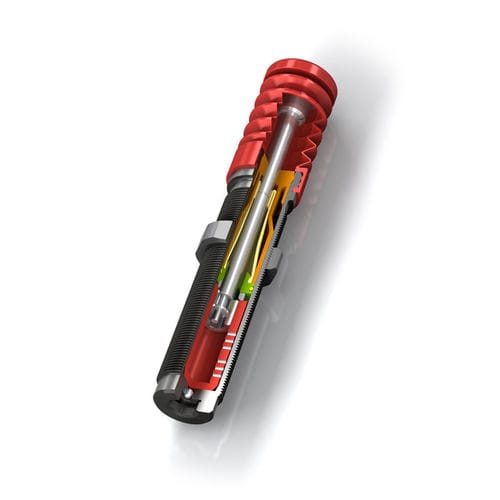Reliable protection against fluids
Self-Compensating, Rolling Diaphragm Technology, TPU Bellow
Hermetically sealed: The shock absorbers from the ACE Protection family PMCN have a compact, perfectly sealed cap as a special feature.
This protection bellows, made of TPU (thermoplastic polyurethane), safely encapsulates the proven ACE rolling diaphragm from the outside environment. Aggressive cutting, lubricating and cleaning agents don't stand a chance and the function of the maintenance-free, ready-to-install shock absorber is retained. They are also available in full stainless steel.
The PMCN range is a good alternative to the SP type air bleed collar if no compressed air is available on the machine or system.
Reliable protection against aggressive fluids, these miniature shock absorbers are the first choice everywhere where conventional dampers wear out too quickly, eg. As in machining centers or other applications of mechanical engineering.
Technical data
Impact velocity range 0.06 m/s to 6 m/s. Other speeds on request.
Operating temperature range 0 °C to 66 °C
Mounting in any position
Positive stop Integrated
Material Outer body: steel corrosion-resistant coating; Main bearing: plastic; Piston rod: hardened stainless steel (1.4125, AISI 440C); Bellow: TPU, steel insert: stainless steel (1.4404/1.4571, AISI 316L/316Ti); Rolling diaphragm: EPDM
Damping medium oil, temperature stable


